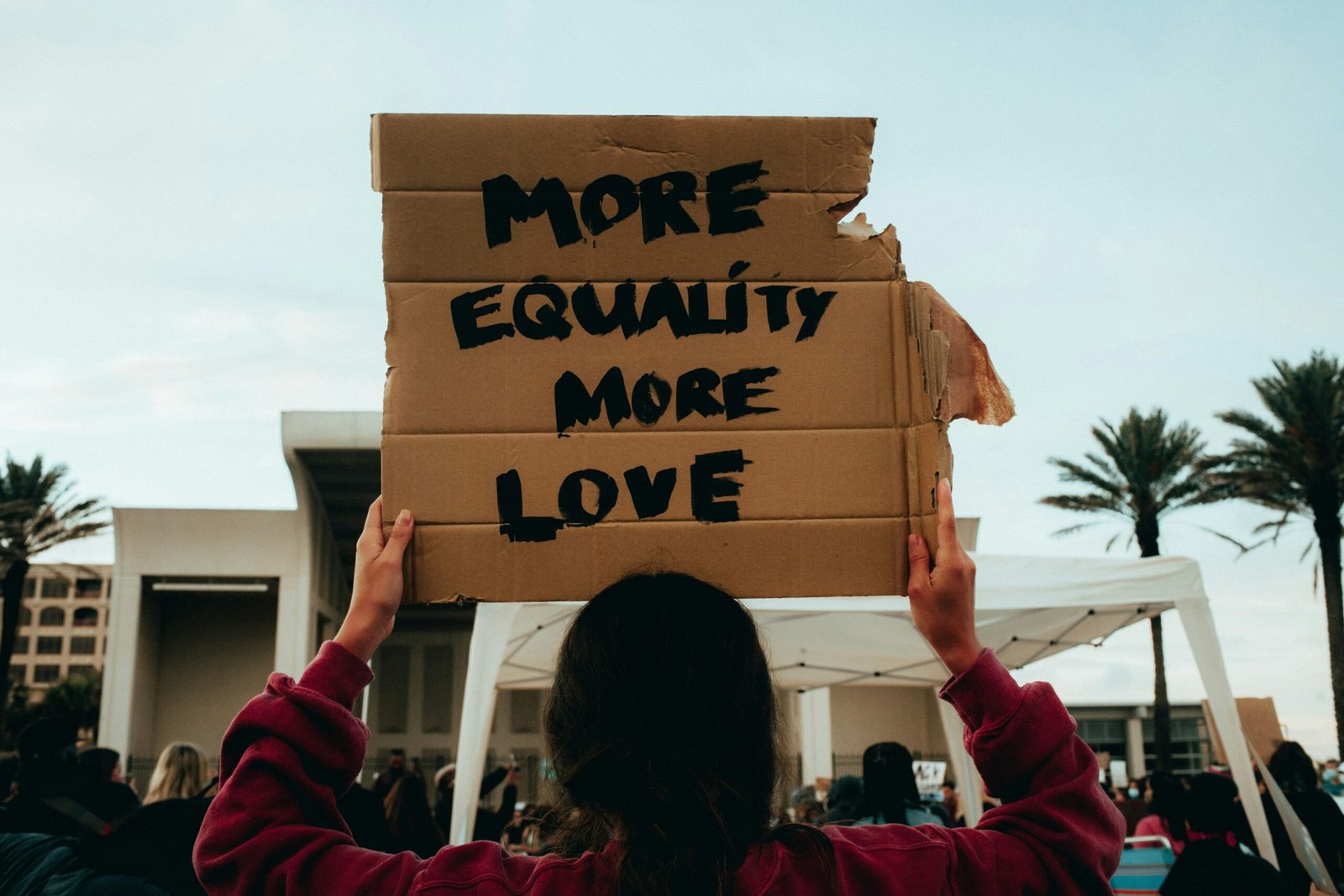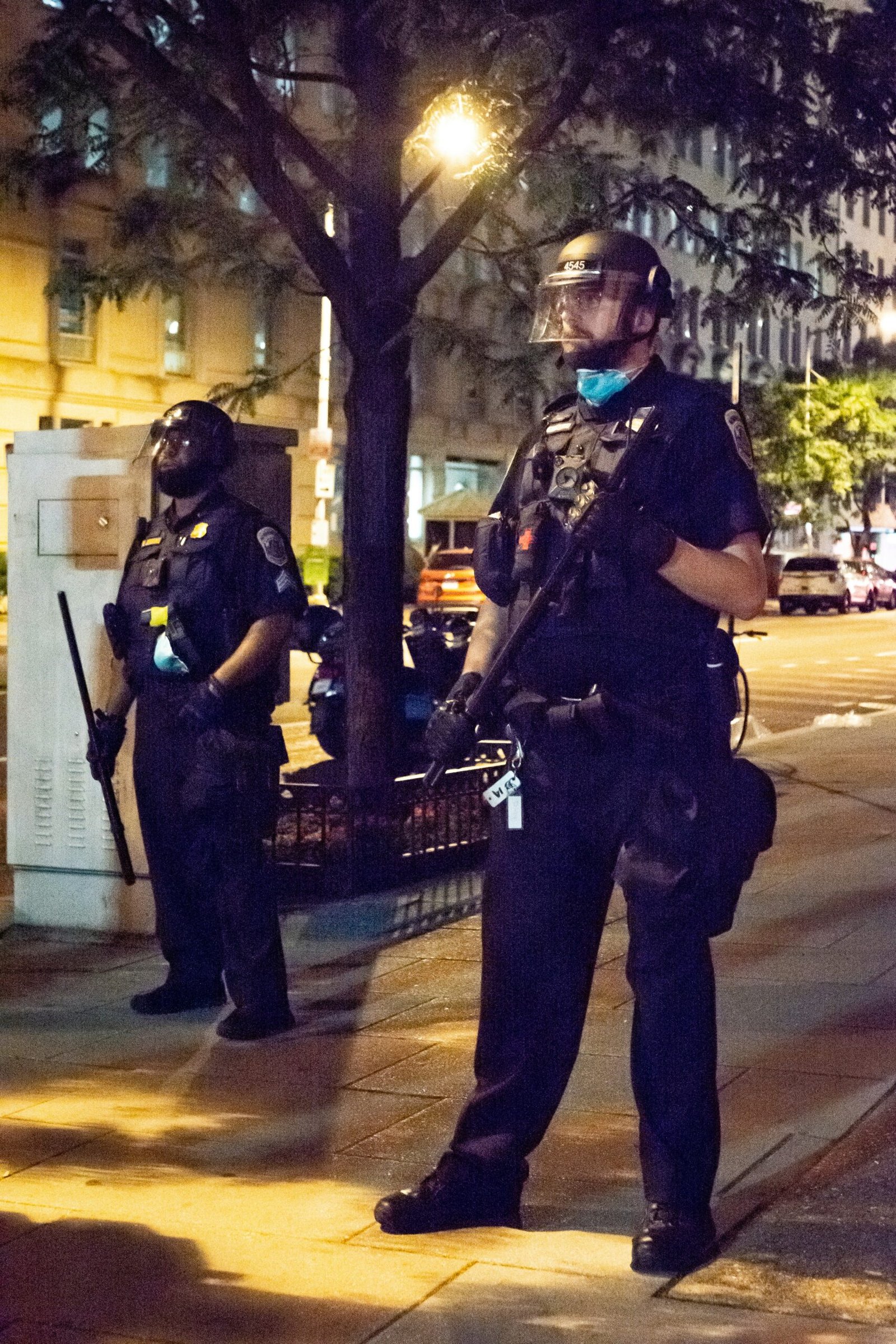Introduction: The Ongoing Struggle for Justice
The pursuit of justice is an enduring battle that underscores the essence of societal norms and human rights. In particular, the Black community has consistently grappled with systemic racial inequality that dates back centuries. This struggle is characterized by historical injustices, marked by slavery, segregation, and discrimination, which have left indelible scars across generations. The fight for civil rights has seen waves of activism aimed at dismantling these deep-rooted systems, yet the road to equality remains fraught with challenges.
Throughout history, the quest for justice has sought to address not only the overt acts of racism but also the subtler, institutionalized forms of discrimination that pervade various aspects of society, including education, employment, and law enforcement. The legacy of racial inequality continues to manifest in disparate outcomes for Black individuals, reinforcing the need for ongoing advocacy and reform. In recent years, high-profile incidents of police violence have sparked widespread protests and movements aimed at amplifying the voices of those demanding justice. These protests reveal the urgent necessity for change, even as they highlight the emotional exhaustion experienced by many advocates, often described as ‘white fatigue.’
‘White fatigue’ refers to the weariness and reluctance to engage in discussions surrounding race and privilege, which often renders constructive dialogue challenging. This phenomenon complicates the fight for justice, as it can lead to a dilution of the urgency surrounding the issues at hand. Consequently, understanding ‘white fatigue’ becomes pivotal in appreciating the dynamics of allyship and equity within the larger context of social justice efforts. The complexities behind these feelings must be acknowledged and addressed to promote a more equitable future for all.
Historical Context of Racial Injustice
The history of racial injustice in America is marked by systemic discrimination and social unrest that has profoundly impacted the Black community. The foundation of these injustices can be traced back to the era of slavery, which began in the early 17th century and persisted until the passage of the Thirteenth Amendment in 1865. This legislation, while formally abolishing slavery, did not eliminate the structural inequalities that would continue to affect African Americans for generations.
Following the Civil War, the Reconstruction era aimed to integrate formerly enslaved individuals into society. However, with the end of Reconstruction in 1877, many of the gains made were reversed through Jim Crow laws, which enforced racial segregation throughout the Southern states. This period was characterized by widespread discrimination and disenfranchisement, making it increasingly difficult for Black Americans to gain equitable access to education, employment, and civic participation.
The mid-20th century brought about the Civil Rights Movement, a crucial period in the fight for racial equality. Key figures such as Martin Luther King Jr., Malcolm X, and Rosa Parks emerged as powerful leaders advocating for change. Landmark events, including the Montgomery Bus Boycott and the March on Washington in 1963, highlighted the demand for civil rights and social justice. The Civil Rights Act of 1964 and the Voting Rights Act of 1965 were significant milestones, prohibiting discrimination based on race and ensuring voting rights for African Americans.
Despite these legislative advancements, racial injustice persists, often manifesting through economic disparities, police brutality, and systemic racism. Understanding this historical context is essential in comprehending the ongoing struggles within the Black community and the concept of “White Fatigue,” which reflects the complexities and challenges faced by individuals striving for racial justice and equity today.
What is ‘White Fatigue’?
‘White fatigue’ is a term that has emerged in discussions about race, particularly as it relates to the experiences of Black individuals in predominantly white environments. It encapsulates the feelings of exhaustion and frustration that arise when Black individuals are often expected to take on the role of educators regarding racial issues, especially in contexts where their perspectives are sought after or imposed upon them. This phenomenon unfolds in various settings, from workplaces and educational institutions to casual social interactions, where Black voices are tasked with explaining systemic racism, cultural history, and the nuances of their lived experiences.
The concept of ‘white fatigue’ highlights a critical aspect of racial dynamics: the imbalance in the responsibility to foster understanding and dialogue about race. While education and awareness are essential for progress, the expectation for Black individuals to liberally share their pain and provide solutions can be seen as an unfair burden. Ultimately, ‘white fatigue’ encompasses the struggle for Black individuals to navigate these demanding conversations amidst a backdrop of systemic inequities and social fatigue, marking a need for a more equitable division of responsibility in discussions about race.
The Impact of ‘White Fatigue’ on Justice Movements
‘White fatigue’ refers to the phenomenon where individuals of the white demographic experience a sense of weariness or disinterest in engaging with the complexities of racial issues and the perspectives of marginalized communities, particularly the Black community. This disengagement can have profound implications for justice movements. In a societal context marked by systemic racism and inequality, the ability of diverse groups to come together in solidarity is crucial for fostering change. However, the presence of white fatigue can serve as a barrier to achieving that necessary coalition.
One of the primary challenges posed by white fatigue is its impact on the dynamic of dialogue surrounding justice movements. When white individuals withdraw their engagement, they inadvertently mute essential conversations and diminish the emotional and intellectual labor undertaken by Black activists and thought leaders. This withdrawal can perpetuate a cycle where the voices of marginalized communities are less likely to be heard, thereby stalling progress on critical issues such as police brutality, voting rights, and economic disparities. Additionally, when white allies only participate sporadically or superficially in these movements, it can further alienate Black activists, who often find themselves in a position of having to continually negotiate and justify their experiences.
Moreover, the feeling of fatigue can detract from the urgency of justice movements. When white allies opt out of engaging fully with the issues, it risks creating a perception that these matters are less pressing or important. It can lead to critical miscommunications that undermine the collective movement’s goals. Recognition of white fatigue is essential for leaders within justice movements to devise strategies that foster sustained engagement and build a more inclusive coalition. Thereby, addressing and understanding the roots of white fatigue can help reinvigorate allyship and lead to a more robust and effective fight for justice.
Personal Experiences: Voices from the Black Community
In the complex landscape of race relations, the concept of ‘white fatigue’ emerges from the lived experiences of many within the Black community. As individuals navigate their day-to-day interactions, they often find themselves in situations that require an explanation of their culture, history, and the struggles they face. One such individual, a community activist from Atlanta, shared how she felt compelled to educate her white colleagues about systemic racism. Despite her passion for advocacy, she described the emotional toll these conversations took on her. “It felt like I was constantly running a marathon where I was the only one invested in the outcome,” she expressed.
Another voice, a teacher from Chicago, recounted a time when a student asked, “Why do we have to talk about racism?” His honest inquiry highlighted the fatigue felt by those who feel responsible for educating others. “I want to empower my students, but there are days when the burden of making them understand is overwhelming,” he reflected. These testimonies underscore the emotional labor that Black individuals often bear. They find themselves in a position where they must articulate the nuances of their experiences repeatedly, leading to feelings of exhaustion and frustration.
Equally resonant is the narrative of a mother in New York, who detailed her struggle to explain racial disparities to her children. “Each time I have to share these realities with my kids, a part of me breaks,” she shared. For her, the act of educating her children about the world is both necessary and profoundly exhausting. These personal stories reveal the multifaceted nature of ‘white fatigue,’ illustrating the emotional and psychological burden that comes with educating white allies. The collective voice of the Black community reveals a pressing need for allies to engage in self-education, thereby alleviating the pressure placed on Black individuals to constantly bridge the knowledge gap.
The Role of Allies in the Fight for Justice
Allies play a critical role in the pursuit of justice within the Black community, particularly in addressing systemic racism and combating the phenomenon known as “white fatigue.” To be effective allies, white individuals must engage in a process of active listening and learning, recognizing that their support can significantly impact the movement toward racial equity. It is essential for allies to understand the historical context of racial injustice and be mindful of how their actions, whether intentional or otherwise, can contribute to the fatigue felt by their Black counterparts.
One strategy for fostering positive allyship is to prioritize active listening. This means creating space for Black voices and experiences without imposing one’s perspective or trying to dominate the conversation. By genuinely listening, allies can cultivate an understanding of the challenges faced by the Black community and avoid unintentionally overshadowing the issues at hand. This practice not only promotes a culture of respect but also emphasizes the importance of validating the experiences and emotions of those who have been affected by systemic oppression.
Furthermore, allies should commit to continuous learning. Engaging with literature, attending workshops, and participating in discussions about race and equity can inform better allyship. This commitment demonstrates a willingness to understand the complexities of racial injustice and to learn about the social dynamics that perpetuate it. Allies must also consider their privilege and how it can be used to advocate for change without taking the spotlight from marginalized voices.
Support can come in various forms, from amplifying Black narratives on social media to actively participating in community events that promote racial justice. Allies should strive to facilitate environments where Black individuals feel empowered to share their truth and experiences. By embodying these principles—active listening, continuous learning, and supportive engagement—white allies can contribute to a more equitable society while minimizing the impact of white fatigue within the Black community.
Coping Mechanisms and Strategies for the Black Community
In addressing the pervasive issue of ‘white fatigue,’ it is essential for the Black community to develop coping mechanisms and strategies that foster resilience and well-being. The emotional toll of constantly educating others about race and navigating systemic inequalities can be overwhelming, thus placing a heightened importance on self-care practices. By engaging in activities that promote health and relaxation, individuals can better equip themselves to handle the stress associated with these societal challenges.
Self-care can take many forms, ranging from physical exercise, which releases endorphins and reduces stress, to meditation and mindfulness practices that help center the mind. Regular participation in creative outlets, such as art, music, or writing, can also serve as an effective form of expression and healing. When individuals take time to nurture their mental and physical health, they can more effectively combat the feelings of frustration and fatigue that often accompany discussions on race.
Additionally, community support systems play a crucial role in mitigating the effects of ‘white fatigue.’ Connecting with peers who share similar experiences can offer a sense of validation and understanding, creating a safe space for discussion and reflection. Community organizations focused on Black empowerment can also provide resources and a collective voice that amplifies the need for societal change while reducing the burden on individuals. Building networks that encourage collaboration can foster a sense of unity, helping individuals feel less isolated in their experiences.
Finally, one of the most practical strategies for coping with ‘white fatigue’ involves setting boundaries. It is important for individuals to recognize their limits regarding how frequently they engage in discussions about race. Learning to say no and prioritizing one’s mental health can help create a healthier balance between advocacy and personal well-being. By implementing these strategies, the Black community can develop a more sustainable approach to the fight for justice, ultimately enhancing both individual and collective resilience.
The Future of Justice Movements: A Call to Action
The landscape of justice movements is continuously evolving, marked by a growing awareness of systemic issues affecting marginalized communities. Currently, movements such as Black Lives Matter and other grassroots organizations play a pivotal role in advocating for racial equity and justice. These groups have served as catalysts for broader conversations around the significance of understanding and addressing racism, highlighting the necessity of dismantling systemic oppression. It is crucial for both Black and white individuals to collaborate in these efforts, as meaningful change requires a collective commitment to allyship and solidarity.
White fatigue, a term reflecting the weariness some white individuals experience when engaging in discussions about race, poses a challenge to these movements. Overcoming this fatigue is vital; it calls for a deeper understanding of the struggles faced by the Black community and a willingness to engage actively in dialogue. The responsibility of combating racial injustice does not rest solely on the shoulders of Black individuals; rather, it requires a united effort. This united front can lead to transformative change in institutions, policies, and societal attitudes.
Engaging in conversations about race and justice should not be perceived as an obligation but as an opportunity for personal growth and societal advancement. As advocates for justice, individuals are encouraged to educate themselves about the historical context of racial issues and to listen empathically to the voices of those affected by such injustices. Collective action often breeds power, and through unified efforts, significant strides can be made toward achieving restorative justice.
In conclusion, the future of justice movements rests upon the active participation of all individuals, regardless of their racial background. By recognizing the importance of solidarity and continuously challenging our perspectives, society can foster an environment conducive to true equity and justice for all.
Conclusion: Continuing the Fight for Justice Together
The ongoing struggle for justice within the Black community is a multifaceted issue that has been poignantly highlighted throughout our discussion. The concept of ‘White Fatigue’ underscores the unique challenges faced by Black individuals as they engage in dialogues about race, equity, and social justice. This awareness not only serves to educate but also encourages a collaborative effort to dismantle systemic inequalities that persist in society.
The commitment to fostering an equitable society goes beyond acknowledgment; it demands action from all communities. Allies have a pivotal role to play as they actively participate in conversations about race and racism, ensuring that their voices support efforts for change rather than inadvertently dampening the momentum of social justice movements. By understanding the experiences of the Black community and recognizing the impact of ‘White Fatigue,’ individuals can cultivate an environment that prioritizes empathy, solidarity, and genuine support.
Education must serve as a cornerstone of this commitment. By seeking to understand the historical context and contemporary implications of systemic racism, individuals can equip themselves with the knowledge necessary to engage thoughtfully. Such understanding helps in identifying actions, whether through advocacy, allyship, or community involvement, that can actively contribute to social change. Furthermore, collaboration between diverse groups can empower communities to advocate more effectively for policies that support equity and justice.
In conclusion, the fight for justice is an ongoing endeavor that necessitates consistent effort from everyone. Together, through education and mutual understanding, we can aspire to build a society that is just, equitable, and inclusive for all. The collective actions of each individual serve as a stepping stone towards effecting real change and ensuring that the principles of justice are upheld for generations to come.



